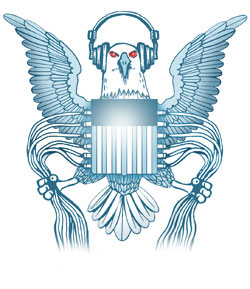 NEWS
NEWS
 NEWS
NEWS
 NEWS
NEWS
![]() Another week, another revelation about the NSA. This time the New York Times has reported that the NSA is collecting social networking data about US citizens. Here’s what they’re collecting: Who your friends are, who your contacts are, location information, and more. This isn’t a spreadsheet, but a massive sophisticated graph of all this social information about you, your family, and everyone you may know. The revelation comes from interviews with various officials and a batch of newly revealed documents.
Another week, another revelation about the NSA. This time the New York Times has reported that the NSA is collecting social networking data about US citizens. Here’s what they’re collecting: Who your friends are, who your contacts are, location information, and more. This isn’t a spreadsheet, but a massive sophisticated graph of all this social information about you, your family, and everyone you may know. The revelation comes from interviews with various officials and a batch of newly revealed documents.
The policy shift was intended to help the agency “discover and track” connections between intelligence targets overseas and people in the United States, according to an N.S.A. memorandum from January 2011. The agency was authorized to conduct “large-scale graph analysis on very large sets of communications metadata without having to check foreignness” of every e-mail address, phone number or other identifier, the document said. Because of concerns about infringing on the privacy of American citizens, the computer analysis of such data had previously been permitted only for foreigners.
![]() This should hardly be a surprise, after all the egregious nature of a number of intelligence efforts that have thus far been revealed – this has to rank rather mildly. Privacy advocates for years have been talking about the perils of participating in deceptively benign social networks. Every day people willingly share their information about who they are connected to, birthdates, pictures, addresses, GPS information and so on. In a way, it’s people themselves that shoulder some of this blame because they are more and more connected.
This should hardly be a surprise, after all the egregious nature of a number of intelligence efforts that have thus far been revealed – this has to rank rather mildly. Privacy advocates for years have been talking about the perils of participating in deceptively benign social networks. Every day people willingly share their information about who they are connected to, birthdates, pictures, addresses, GPS information and so on. In a way, it’s people themselves that shoulder some of this blame because they are more and more connected.
What is disturbing however is how once again the scope of collection falls upon the citizens of the US. Foreign targets are one thing and something that many would expect as you would expect to be the scope of numerous other intelligence efforts. Clearly the controversies here are privacy and continued scope creep beyond foreign targets and into the lives of private parties in the US.
N.S.A. officials declined to say how many Americans have been caught up in the effort, including people involved in no wrongdoing. The documents do not describe what has resulted from the scrutiny, which links phone numbers and e-mails in a “contact chain” tied directly or indirectly to a person or organization overseas that is of foreign intelligence interest.
It hasn’t been revealed what technology is behind the collection and aggregation of information, but it’s a sure bet that some type of massive computer automated operation must be at the center of it all. To put it to use would require massive search capabilities as well (Read: Big Data). Public reaction to this latest revelation will likely vary, because of the numerous elements involved from the social sharing contract, to miscellaneous expectations that the NSA would conduct these kind of operations, to the trespassing of people’s self-expected right to privacy. There are those as well that expect the right to not have their information collected and analyzed by a government agency. That’s where I suspect most people’s opinions lie. After all, sharing information with your friends and family, and even the social media outlet you do it on is one thing, but when the government is busy collecting this information to whatever purpose, it becomes a difficult thing to accept.
We will continue to monitor for statements on this topic from privacy groups like the Electronic Frontier Foundation (EFF). The EFF is organizing a massive rally against government surveillance in Washington D.C. scheduled for October 26th.
THANK YOU